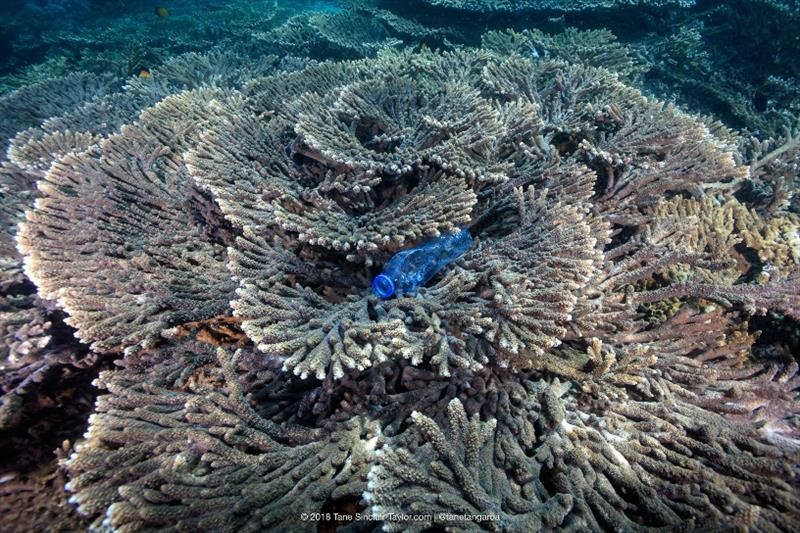
Plastics linked to disease in coral
by coralcoe.org.au 7 Feb 2018 22:10 UTC

Plastic Pollution in Oman, Gulf or Arabia © Tane Sinclair-Taylor
An international team led by a JCU scientist has found that contact with plastic waste massively increases the chance of disease in corals.
Dr Joleah Lamb, from the ARC Centre of Excellence for Coral Reef Studies based at JCU, led the study reported in the journal Science this week.
"We examined more than 120,000 corals, both plastic-free and with plastic present, on 159 reefs from Indonesia, Australia, Myanmar and Thailand. We found that the chance of disease increased from 4% to 89% when corals are in contact with plastic," said Dr Lamb.
She said very few studies have examined the role plastics could play in promoting disease in the marine environment.
"We don't know the exact mechanisms, but plastics make ideal vessels for colonizing microscopic organisms that could trigger disease if they come into contact with corals," Dr Lamb said.
"For example, plastic items such as those commonly made of polypropylene, like bottle caps and toothbrushes, have been shown to become heavily inhabited by bacteria that are associated with a globally devastating group of coral diseases known as white syndromes."
Dr Lamb said the problem of plastic waste looks to be getting worse.
"We estimate there are 11.1 billion plastic items on coral reefs across the Asia-Pacific and forecast this to increase by 40% within seven years. That equates to an estimated 15.7 billion plastic items on coral reefs across the Asia-Pacific by 2025," she said.
JCU's Emeritus Professor Bette Willis said the finding adds to the burden of climate-related disease outbreaks that have already had an impact on coral reefs globally.
"Bleaching events are projected to increase in frequency and severity as ocean temperatures rise. There's more than 275 million people relying upon coral reefs for food, coastal protection, tourism income, and cultural significance. So moderating disease outbreak risks in the ocean will be vital for improving both human and ecosystem health."
See science publication here